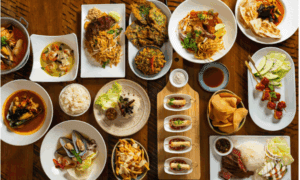In the dynamic and ever-evolving landscape of the food industry, businesses face myriad challenges ranging from menu development to operational efficiency. Amidst these complexities, the role of food and beverage consultants emerges as a crucial component for success. These industry experts bring a wealth of knowledge, experience, and strategic insight to the table, offering invaluable guidance and support to food establishments of all sizes. Let’s delve deeper into the multifaceted role of food and beverage consultants and their impact on the food industry.
Menu Development and Innovation
One of the primary responsibilities of food and beverage consultants is to assist restaurants, hotels, and other food establishments in developing menus that are not only enticing but also aligned with current culinary trends and consumer preferences. By leveraging their culinary expertise and market insights, consultants can help create menus that offer a perfect balance of flavors, textures, and nutritional value. Additionally, they play a pivotal role in fostering innovation by introducing new and creative dishes that set businesses apart from their competitors.
Operational Efficiency and Cost Management
Efficient operations are essential for the success of any food establishment. Food and beverage consultants specialize in optimizing operational processes to enhance productivity, minimize waste, and improve cost management. Whether it’s streamlining kitchen workflows, optimizing inventory management systems, or implementing staff training programs, consultants work closely with clients to identify areas for improvement and implement tailored solutions that drive efficiency and profitability.
Quality Assurance and Compliance
Maintaining high standards of food safety, hygiene, and quality is paramount in the food industry. Food and beverage consultants play a critical role in ensuring compliance with regulatory requirements and industry standards. From conducting food safety audits to implementing HACCP (Hazard Analysis and Critical Control Points) protocols, consultants help businesses mitigate risks and uphold their reputation for excellence.
Concept Development and Branding
Launching a new restaurant or revamping an existing concept requires careful planning and strategic execution. Food and beverage consultants collaborate with clients to conceptualize unique dining experiences that resonate with their target audience. This involves everything from defining the restaurant’s theme and ambiance to crafting its brand identity and marketing strategy. By aligning the concept with consumer preferences and market trends, consultants help businesses establish a distinct and memorable brand presence.
Training and Development
The success of any food establishment hinges on the proficiency and professionalism of its staff. Food and beverage consultants provide comprehensive training programs tailored to the specific needs of each client. Whether it’s culinary training for kitchen staff, service etiquette for front-of-house personnel, or management training for leadership teams, consultants equip employees with the skills and knowledge required to deliver exceptional customer experiences consistently.
Market Analysis and Strategy
In an increasingly competitive market, staying ahead of the curve requires a deep understanding of industry trends and consumer behavior. Food and beverage consultants conduct thorough market analysis to identify emerging opportunities and potential threats. They develop strategic plans and actionable recommendations to help businesses capitalize on market trends, expand their customer base, and achieve sustainable growth.
Final Words
Food and beverage consultants play a multifaceted role in the food industry, offering invaluable expertise and support to businesses seeking to thrive in a competitive market. Whether it’s menu development, operational optimization, branding, or staff training, their contributions are instrumental in driving innovation, efficiency, and success. By partnering with experienced consultants, food establishments can navigate challenges effectively and position themselves for long-term growth and profitability.



































